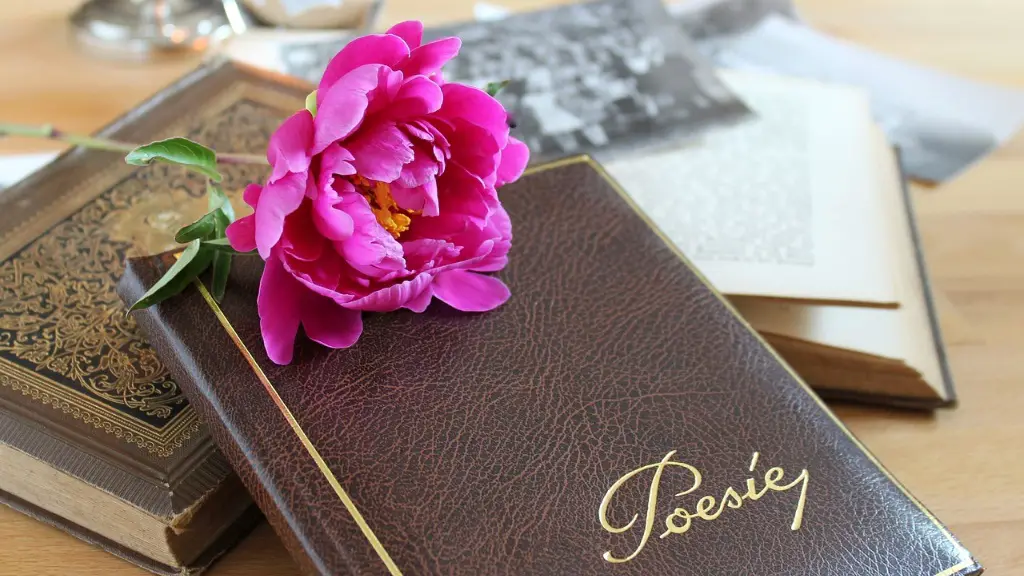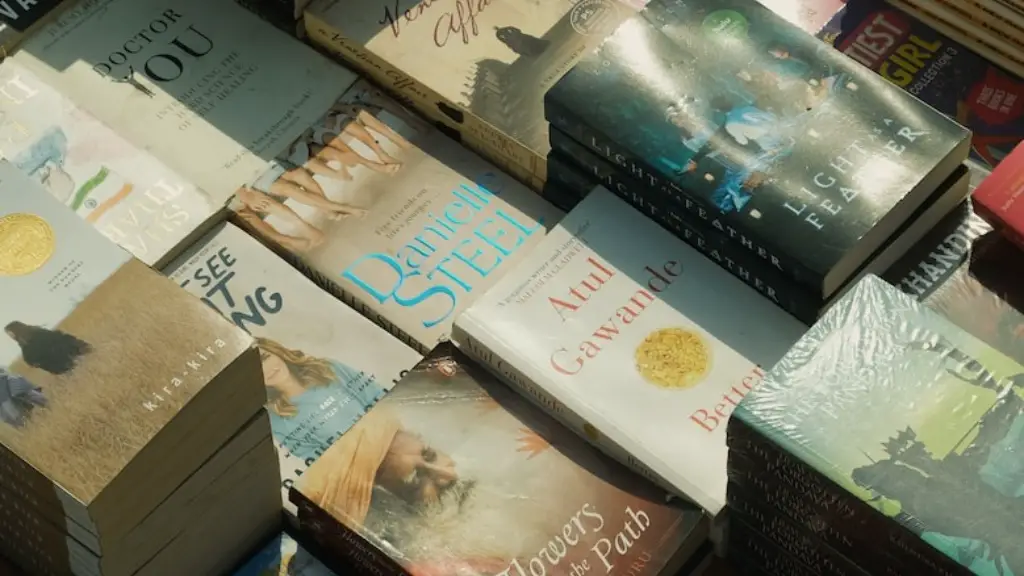If you are a poet with the ambition and commitment to publish your work, don’t give up — it’s worth the hard work. Getting your poetry published involves setting yourself up for success by understanding the process and respecting the conventions of the industry.
The publishing process begins with determining which publications to query. This may seem overwhelming at first. It helps to research which publishers specialize in the type of poetry that you write, as well as those that may accept more than one style. It’s important to be familiar with the content and mission of each publisher, so you can make sure that your work is a good fit.
Once you’ve compiled a list of potential publishers, the next step is to write a query letter. This letter introduces your poem and yourself to the publisher, and should include a brief biography of yourself as well as your contact information. You can also include a few lines from your poem(s) to further your introduction. When crafting your query letter, be sure to include relevant topics and keywords that speak to the interests of the publisher. This will help them to get a better understanding of your work.
The next step is making sure that your poem is “ready for primetime” so to speak. Once you have read your poem aloud to yourself and to trusted friends, the next task is to ensure that your poem is properly formatted. Many publications rely on strict formatting conventions, so it’s important to use proper grammar and grammar-check software.
After you have completed these steps and are confident that your poem is up to standard, the next step is to submit to the publisher or literary magazine. Often, this is done through an online submission platform such as Submittable or Poets & Writers. When submitting your work, be sure to follow the publication’s guidelines for submitting. This includes length, formatting, and themes. Once you have submitted your poem, allow the editors time to determine whether or not your work meets the publication’s standards.
Finally, the last step is touch up and feedback. When and if your poem is accepted by the publisher, the editors may provide feedback and suggest changes. If you receive constructive criticism, remember that the feedback is meant to help your work. Take the suggestion into consideration and use them to improve your poem before submitting it elsewhere. Additionally, be sure to use the experience and knowledge gained from this publication as you continue to pursue getting your poetry published.
Submitting to Literary Contests
For poets, submitting their work via literary contests offers an additional possibility for publication. Literary contests typically include awards, prizes, feedback and even publication. Submitting to literary contests requires the same amount of work and preparation as submitting to publications and beyond. When selecting the appropriate contests to submit to, consider reading previous winners’ work, closely reading the rules for the submission guidelines and gaining a better understanding of the judging process.
Another key factor to consider is the reputation/standing of the contest. Does it hold any merit? Is it respected in the poetry world? Do past winners of the contest go on to successful writing careers? These are all questions you should ask yourself when researching contests to submit your work to.
After selecting suitable contests to submit to and understanding the submission guidelines and process, the next step is taking the time to prepare your work to be submitted. This includes fine-tuning your poem so that it best conveys your message and follows the guidelines set forth by the literary contest organizer. Although literary contests require the same amount of hard work as submitting your poems to other publications, the reward of being noticed and acknowledged by respected publishers and authors makes the effort worthwhile.
Building an Online Audience
As with any artistic pursuit, building an audience is key for poets and one of the most important steps for getting your work published. This is especially true in the digital age, as poets are more and more often required to prove their ability to draw attention to and engage with their work.
Having an online platform helps poets to better connect with editors and agents who are constantly on the lookout for fresh talent. Whether this is done through an email list, blog, or social media, connections are key to successful publication. Poets can use these platforms to showcase their work and build relationships with players in the publishing world.
When using social media, it’s important to use hashtags and other keywords related to the type of writing that you are interested in. You can find potential publishers or curated feeds to follow, as well as networks that can help connect you with other poets. It’s also a great way to stay up to date on what’s popular in the writing world.
Additionally, connecting with writing organizations and spaces such as local writers’ collectives can provide valuable resources and connections. Participating in readings and open-mics can help to expand your network and hone your craft.
Working with an Agent
Another way to help get your poetry published is to look into working with an agent. An agent is an experienced representative that understands the publishing industry and can help support an author throughout the process.
When selecting an agent, look for someone who specializes in your genre and is well versed in the poetry world. Additionally, it’s important to ensure that the agent is reputable, knowledgeable and a good communicator. Interview a few agents and make sure that they understand your goals and your vision. It’s also important to understand the agent’s representation contract and to negotiate the terms if necessary.
Agents can be great resources for editing and advice, as well as guidance in the publishing process. They can provide an impressive network of contacts including editors and publishing houses. An agent can look for the perfect home for your work and can negotiate for you to get the best publishing contract.
Strategies for Self-publishing
For poets who are having difficulty getting published, self-publishing is an attractive option. Self-publication is a great way to get your poem in the hands of readers and to widen your readership.
When self-publishing, make sure to take the time to edit your poem thoroughly. It’s important to start with a finished, polished product. Additionally, make sure to follow the proper formatting rules and consider working with an editor or a layout designer.
Beyond that, researching the most popular self-publishing services and opting for the one that works best for you. Remember to also take into consideration the payment structures and fees. When it comes to pricing and marketing, research the other books in your genre and price your book accordingly. Consider setting up a website and having a presence on social media platforms. Self-promotion is key for self-publishing and getting your work noticed.
Lastly, make sure to reach out to bookstores and libraries to request that they keep your books in stock. Additionally, doing readings and book signings can also help to promote and generate interest in your book.
Handling Rejection
Rejection is a reality for all authors, especially poets. As difficult as it may be to receive a rejection, it’s important to not take it personally. Instead, use it as an opportunity to further your knowledge and improve upon your work. Take into consideration the comments and feedback provided, and use that to further your understanding of the industry and your own writing.
It’s also important to embrace the process. Rejection isn’t a sign of failure or a deterrent to progress — instead it is a chance to explore and discover other opportunities and to continue to learn and grow. Once you realize the importance and power of the rejection, it can help to get you through to the next stage.
Rejection is usually a result of a mismatch between your work and the publication. If you do receive a rejection, it’s important to keep your hopes up and to continue to reach out to different publications and editors and show them your work. It’s also beneficial to take a step back, revisit your poem and refine it if necessary before submitting to another publication.
Education Through Workshops and Conferences
For poets looking to improve their craft and get their work into the world, workshops, courses and conferences can be invaluable. Many local colleges and universities offer courses specifically for poets and writers. Professional organizations, such as Poets & Writers, also provide educational opportunities for poets.
Workshops provide a space where poets can share their work and receive feedback from experienced individuals in the industry. Courses can provide poets with valuable knowledge, from the fundamentals of poetry to the basics of publishing and literature. Conferences, such as AWP, are another way for poets to come together and to find support and resources.
Taking courses and attending conferences and workshops can equip poets with the knowledge and skills necessary to succeed in the world of poetry. Doing so can help to provide insight into the publishing world and make poets more marketable to publishers. Furthermore, conferences and workshops are great resources for building relationships with fellow writers and publishers.





